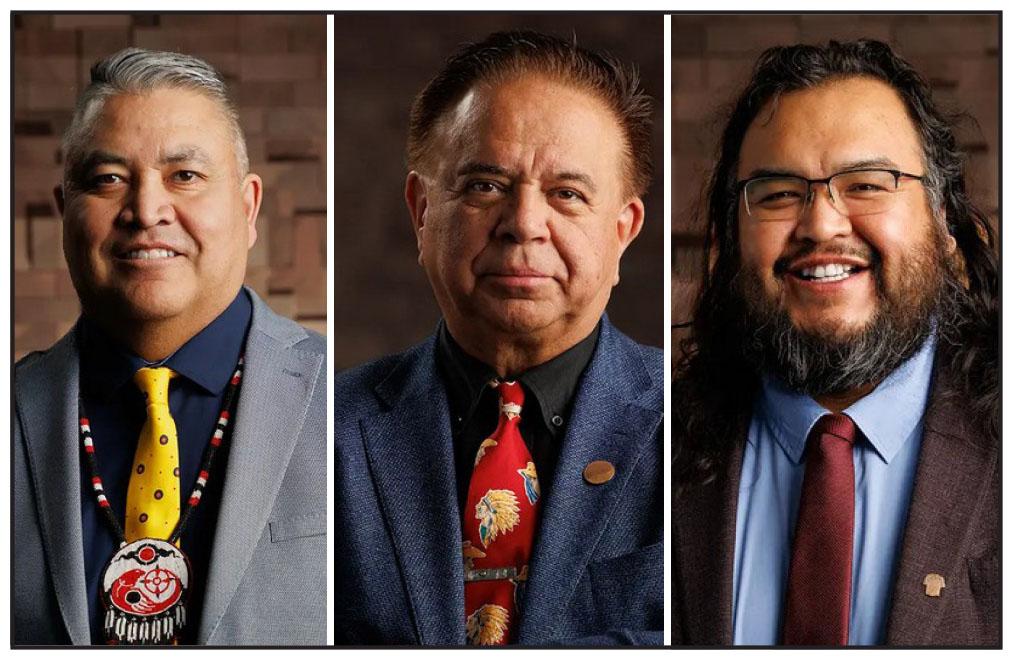Obtain free, prior and informed consent B.C. before granting land tenures, says First Nations Leadership Council
By Deb Steel
Copyright windspeaker

The First Nations Leadership Council (FNLC) is calling on the Province (British Columbia) to consult and cooperate with potentially affected First Nations in order to obtain their free, prior, and informed consent before decisions are made on Crown Land Application #1412379.
Crown Land Application #1412379, submitted by the U.S.-based National Outdoor Leadership School (NOLS), seeks 77 “Crown land” tenures along the West Coast of British Columbia, encompassing First Nations’ ancient village sites.
The FNLC is gravely concerned that Crown Land Application #1412379 does not acknowledge First Nation title and rights holders or potential impacts, such as ecological, cultural, and spiritual impacts. The initial filing of this application by NOLS has circumvented and undermined local governance, proceeding without meaningful consultation and cooperation with First Nations or local communities. The proposed tenures directly intersect with established community plans, B.C. Marine Trails, designated campgrounds, and First Nations’ lands, territories, and resources. Many of the proposed tenure sites lack basic infrastructure such as drinking water or septic systems, which may pose health, safety, and fire risks.
The FNLC calls on the Province to immediately consult and cooperate with First Nations in order to obtain their free, prior, and informed consent before decisions are made on Crown Land Application #1412379, and to cease the practice of granting Crown land leases without fulfilling its obligations to First Nations, including obtaining their free, prior, and informed consent. The FNLC encourages First Nations and local communities that may be affected by Crown Land Application #1412379 to submit comments to the Province before the October 5th deadline.
Chief Don Tom, Vice-President of the Union of BC Indian Chiefs (UBCIC), stated, “First Nations have lived on and cared for these lands since time immemorial. Our ancestors established these sites as places of sustenance, culture, and governance, and they remain integral to our identity and survival. To see an American-based company attempt to occupy our ancient village sites without consent is deeply unacceptable and is a violation of our inherent rights, title, laws, and jurisdiction. The Province must not grant any tenures without first obtaining the free, prior and informed consent of First Nations and commit to working in partnership with First Nations to protect our lands and waters from exploitation.”
BC Assembly of First Nations Regional Chief Terry Teegee added, “At a time when Canada is asserting its sovereignty in the face of U.S. political threats, it is unthinkable to consider leasing Crown lands to U.S.-based organizations. Leasing our lands to foreign companies for commercial gain—without our free, prior, and informed consent—cannot be justified. The governments of British Columbia and Canada must uphold their legal commitments to align with the United Nations Declaration on the Rights of Indigenous People, and they must do so not just in words but in meaningful action.”
Hugh Braker, First Nations Summit Political Executive, concluded, “This application highlights what is wrong with so-called “Crown land” policy in British Columbia. For far too long, First Nations in B.C. have been treated as an afterthought in land management decisions, when our title and rights should be central to every decision about our homelands. The Province’s failure to meaningfully consult and cooperate on an application of this scale—covering 77 sites, many of them sacred and culturally significant—shows the broken nature of the system. B.C. must understand that these lands are not simply vacant spaces to be carved up for corporate profit. They are living places of history, culture, and governance, and they must be protected.”



